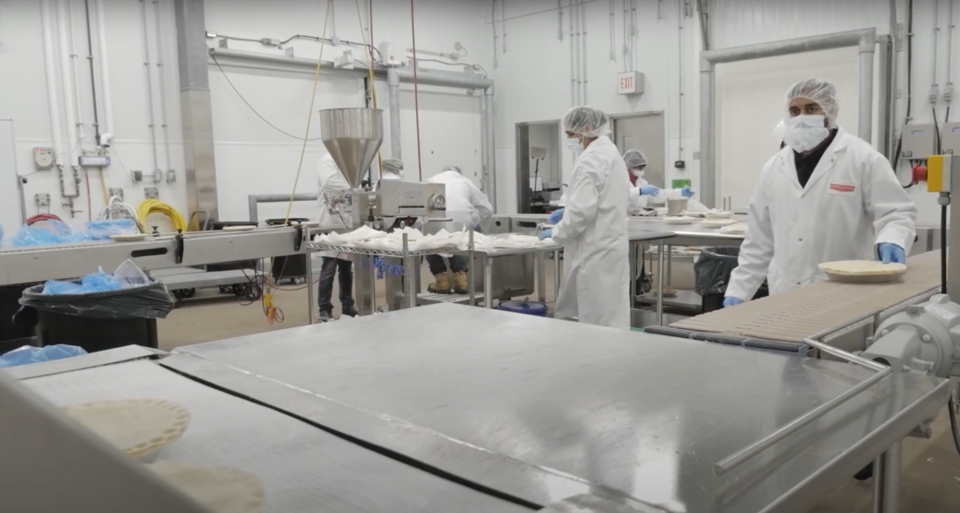Hundreds of Alberta businesses have come through the Leduc food centre, getting help to refine their product or expand their operation. With the construction of a 2,300-square-foot expansion of the centre's Agrivalue Processing Business Incubator (APBI) now complete, the renovated facility has space for up to nine businesses to lease food processing suites and get support from the in-house development team.
The massive Leduc food centre houses a Canada Food Inspection Agency-licensed kitchen and production lab and helps small businesses get their product ready for national and international markets. Along with access to the space and equipment, companies in the APBI get connected with marketing specialists, food scientists, and product development experts.
Groundswell Food Group got its start in the APBI in 2016, working with the team to navigate complicated inspection requirements and get its line of naturally smoked meat products into grocery stores.
"We're a little bit unique as a meat producer. Many of the retail opportunities that we pursue require federal inspection," said Brandon Markiw, Groundswell's founder and CEO, at a press conference on Dec. 4.
The crew on hand at APBI helped Markiw navigate the federal inspection environment, "something that was completely foreign to me to begin with and an intense framework to comply with."
Since starting, Groundswell has grown from manufacturing one to 30 products that are now sold in stores across North America.
The facility gives businesses the chance to pursue big ideas with fewer costs and less risk, Markiw said. "I'm constantly told by peers in the industry that we're the envy of the food beverage manufacturing industry."
"Since the Agrivalue Processing Business Incubator opened in 2007, there have been 15 tenants that have employed 500 full-time employees and invested $138 million to grow their business. Most tenants remain at the incubator for about five years," Agriculture and Irrigation Press Secretary Ashly Stevenson said in an e-mail.
For small and medium-sized businesses, getting a start in the agri-food industry is very capital intensive, said RJ Sigurdson, Minister of Agriculture and Irrigation. "Facilities like this shoulder a lot of that burden off the start, to get their feet underneath them and get them profitable so they can grow their business to a size that makes the transition for them to go and build their own facilities so much easier," he said.
St. Albert's Red House Salsa isn't yet ready to move into a dedicated building of its own, but for owner Mary Burch, her time in the food processing development centre "has been life-changing."
Burch and her small crew had been making their salsa in a rented kitchen at the Red Willow Community Church. When large orders started coming in, Burch knew she needed to scale up, eventually landing in Leduc processing facility.
"I got a call from a gift basket company in 2021. And they wanted 1,500 jars of salsa. And to my absolute amazement and excitement I hung up the phone and then instantly panicked because I knew in my head, oh my goodness, that is going to take us six days to create."
In the rented church kitchen, Burch said she could produce maybe 250 jars of salsa over a few days. Her last cook in the food centre yielded 1,000.
"For small business, it's a very big game changer," she said.




